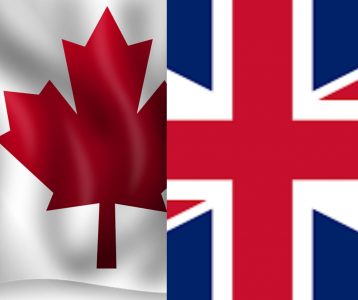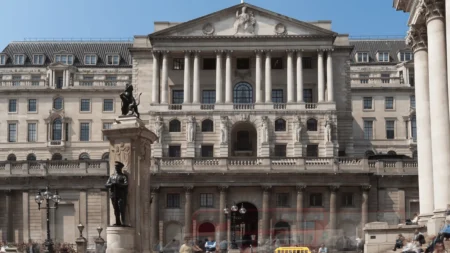RBC is one of Canada’s biggest banks and the biggest of the Big Five in terms of assets, market share, and capitalization. It is par for the course that RBC has a robust mutual funds portfolio. The RBC mutual funds scheme is a massive attraction for investors because of its yield and ability to diversify their investments.
The RBC mutual funds are distributed by the Royal Bank Global Asset Management, offering over 290+ mutual funds that range from sector-specific, global, and money market funds.
These funds have a varying degree of risk depending on their investment objectives and the portfolio’s composition. RBC also provides investors with portfolio solutions, including investment alternatives and exchange-traded funds (ETFs).
How Do RBC Mutual Funds Work?
RBC Mutual Funds – just like any other mutual fund, is a product of pooled investment. Investors buy small portions of these funds while the fund manager utilizes these monies to create a portfolio by purchasing underlying bonds, stocks, and other investable products.
RBC’s mutual fund portfolio is anchored on investment objectives, providing earnings that include capital gains, interest, and dividends.
While some mutual funds follow a stock index, others are hinged on hedge funds, derivatives, futures, and other high-risk investments. It is of utmost importance to study the portfolio prospectus before investing your hard-earned money in a mutual fund.
RBC funds are further categorized into passive and active managed funds. A passively managed fund is one where the fund manager isn’t doing a lot of hard work. The fund manager (RBC Global Asset Management) tracks an index to get similar returns.
Passively managed funds can be identified with the tag “index” attached to the portfolio. The Actively managed funds mean that the fund manager takes the initiative by buying and selling the investable products to meet the mutual fund’s objectives.
In both instances, charges and commissions invariably accrue, thereby reducing your ROI. Nonetheless, mutual funds are typically cheap, thus making it worth your while. RBC has almost 300 mutual funds, but a few stand out from the pack as seen below:
Popular RBC Mutual Funds
Mutual funds generally fall under a few categories like bond/income, equity, global, money market, and other funds, including emerging market and sector-specific funds.
These funds have a varying degree of risk and different fees attached to them. In sum, the more risky the fund, the higher the likelihood to make a big profit or score a considerable loss.
The mutual fund manager must guide you through the process by answering any questions you might have before proceeding to invest.
RBC Canadian Money Market Fund
The RBC Canadian Money Market Fund has an initial entry-level investment of C$500 and additional investments of C$25. The mutual fund focuses on high-quality, short-term treasury bills, promissory notes, and other Canadian debt securities. It is a low-risk mutual fund with low volatility.
Highlights
- AUM: C$3.7 billion
- MER: 0.61%
- Three-year return: 1.1%
- Five-year return: 0.8%
RBC Bond Fund
The RBC Bond Fund is one of the oldest mutual funds that have been around since the 1970s. This mutual fund gives investors the chance to put their money on fixed-income securities that incentivize higher returns.
The initial entry-level investment is C$500, while additional investments cost C$25. The mutual fund is considered low-risk for investors.
Highlights
- AUM: C$21.9 billion
- MER: 1.11%%
- Three-year return: 3.6%
- Five-year return: 3.3%
RBC Canadian Index Fund
The RBC Canadian Index Fund is one of the balanced funds on the market. It is a mix of fixed income and cash, including Canadian equities, to allow for future growth and cash stability. As with all index funds, the RBC Canadian Index Fund tracks the S&P/TSX Composite Total Return Index. The fund is administered by Blackrock Asset Management and has an initial entry-level investment of C$500 and an additional C$25 for future investments. It is known as a medium risk fund for investors.
Highlights
- AUM: 763.18 million
- MER: 0.66%
- Three-year return: 2.0%
- Five-year return: 2.6%
RBC Canadian Equity Fund
The RBC Canadian Equity Fund focuses on growth capital in the long-term by seeking high-quality equity securities with growth potential. Some of its top investments include energy companies, banks, Brookfield Asset Management, and Barrick Gold Inc., amongst many others. The entry-level investment fee is C$500 and C$25 for further investments. It is a low-risk mutual fund.
Highlights
- AUM: C$1.8 billion
- MER: 1.89%
- Three-year return: -1.2%
- Five-year return: 0.8%
RBC Life Science and Technology Fund
This mutual fund is a sector-specific fund that puts investors’ money in FAANG stocks (Facebook, Apple, Amazon, Amazon, Netflix, and Google), including telecommunication companies and health care services.
Even though the funds focus on US Equity, it is a medium-risk fund traded in Canadian dollars. The entry-level investment sum is C$500 and an extra C$25 for future investments.
Highlights
- AUM: C$650 million
- MER: 2.1%
- Three-year return: nil
- Five-year return: nil
RBC Mutual Funds that pay Dividends
RBC also has dividend-paying mutual funds that aren’t as risky as the average global or equity fund. These funds may also produce better dividends than a bond or money market mutual fund.
Investors also have the option of reinvesting the dividends of some of these funds to acquire more units. Examples of RBC dividend-paying funds include:
RBC Canadian Dividend Fund
This dividend-paying fund merges the benefits of tax-preferred capital gains with income-producing interest on underlying stocks that pay dividends. Some of its best holdings are CN and CP Rails, Canadian banks, in addition to investment and energy companies.
Highlights
- AUM: C$15.7 billion
- MER: 1.76%
- Three-year return: -0.7%
- Five-year return: 1.9%
RBC US Dividend Fund
As the name implies, the RBC US Dividend Fund focuses on the best US stocks like Mastercard, Apple, JP Morgan Chase, and Microsoft. Although this fund invests in American companies, it is traded in Canadian dollars and considered a low-risk fund.
Highlights
- AUM: C$4.8 billion
- MER: 1.95%
- Three-year return: 6.6%
- Five-year return: 8.0%
RBC European Dividend Fund
The RBC European Dividend Fund enables investors to put their money on European companies with a potential for high returns. Some of the investment portfolios include mining and financial companies, consumer staples, and health services. The fund is considered a medium risk.
Highlights
- AUM: C$142.32
- MER: .98%
- Three-year return: -3.3%
- Five-year return: -0.1%
How to Invest in RBC Mutual Funds
Below is a detailed guide on how to invest in RBC Mutual Funds:
1. Consult a Mutual Fund Advisor
It is mandatory to buy RBC Mutual Funds using a licensed mutual fund professional. RBC mutual funds are accepted and sold via a mutual fund manager licensed to do so in your area of residence.
Only designated bank employees are authorized to buy and sell mutual funds, and these professionals who ply their trade in a bank like RBC only deal in RBC’s mutual funds’ collection.
Contact the Canadian Securities Administrators to know if your fund advisor is licensed in Canada.
2. Map out your Investment Goals
The mutual fund’s advisor will take care of your investment questions before recommending you a selection of mutual funds that align with your investment goals.
These funds may consist of a suite of investment products or a single portfolio designed to meet particular investment objectives. Take note that you need to thoroughly understand what you’re getting into before investing your money in mutual funds.
3. Invest Your Money
Investors have a few choices when it comes to investing in a mutual fund. You may decide to make a considerable contribution or set up automatic payments into your investment account from your bank account.
RBC mutual funds have an entry-level fee of C$500, and you can track your mutual fund performance online. RBC enables investors to register a self-directed investment account that allows them to cherry-pick their investments.
Actively managed funds cost more fee-wise than passively managed funds.
4. Stay Focused
Mutual funds are subject to fluctuation based on stock market movement. These variations may be significant in the short-term and if your investment gives you a cause for worry, consult your fund manager.
If you want to withdraw your money from the mutual fund or invest in another mutual fund, contact your fund manager. Most funds have an operating window of 48-72 hours before converting to cash unless you own a money market fund that works like a cash account.
Note of Caution
Unlike RRSPs, mutual funds are not guaranteed by the CDIC. It is possible to lose a portion or all of your money in a mutual fund. Ensure you have the required knowledge before putting down an investment.
FAQs
What are the Best RBC Mutual Funds?
The best RBC mutual funds depend on your investment objectives. Whether you want long-term reruns or short-term interest, RBC has some of the best mutual funds to satisfy your investment needs.
How do RBC Mutual Funds Work?
RBC mutual funds work by taking investors’ money and using that money to buy a series of investment products while giving each investor a slice of the mutual fund in their investment proportion.
Should I invest with RBC?
As one of the leading Canadian financial institutions, RBC remains an excellent choice for investors looking for stable returns on a long-term investment.
*The information provided in this article does not constitute financial advice, and past fund performance is not an indicator of present or future investment returns.
The information on this page is subject to change, and it is in your best interest to check out the current RBC fund pages for the latest news.












